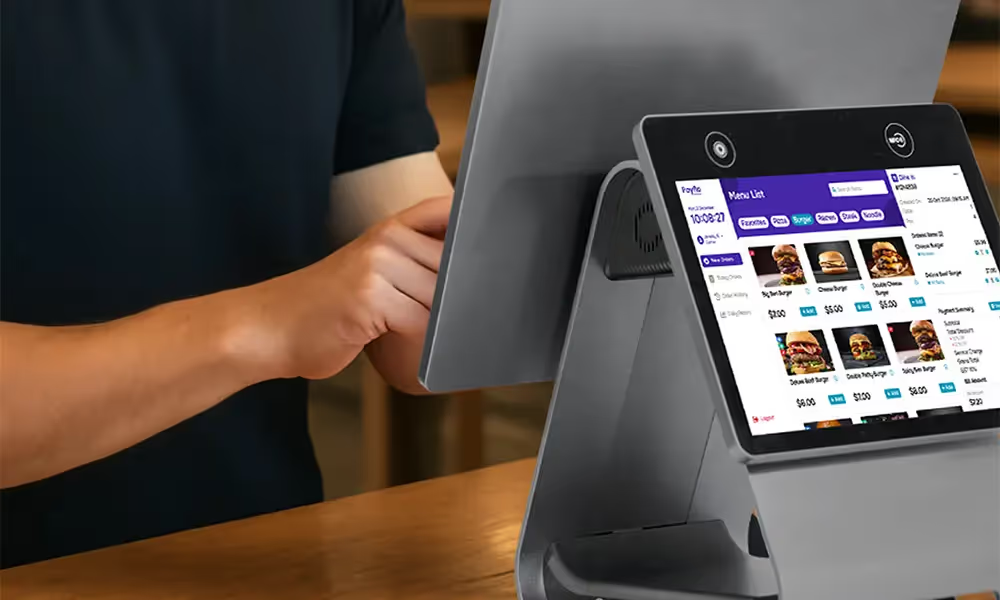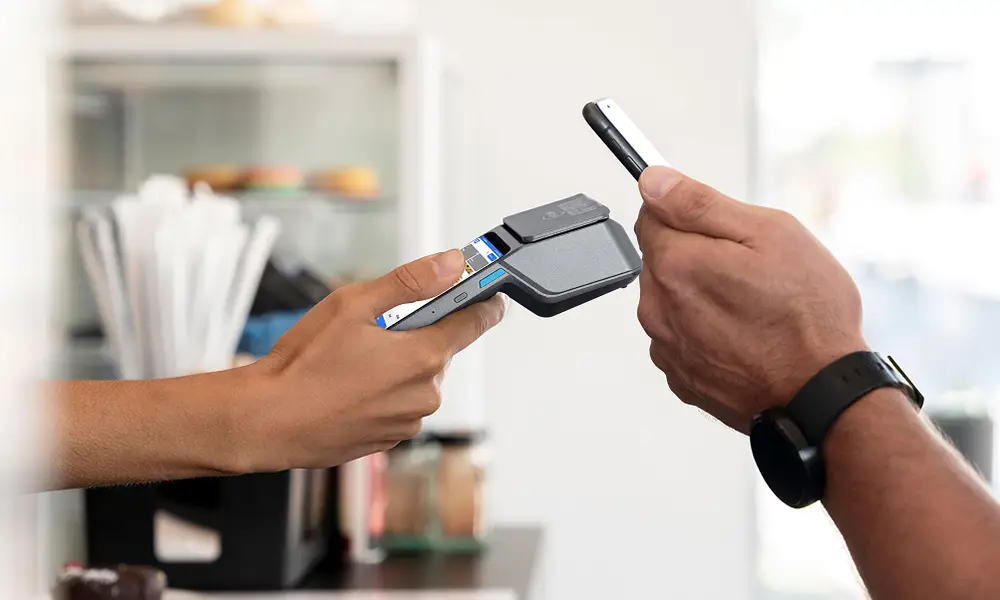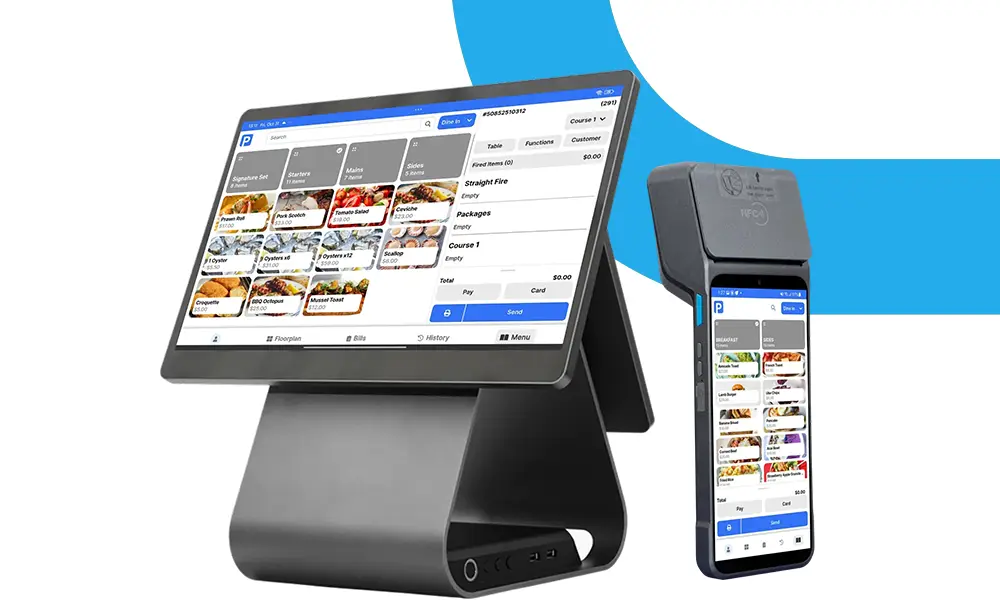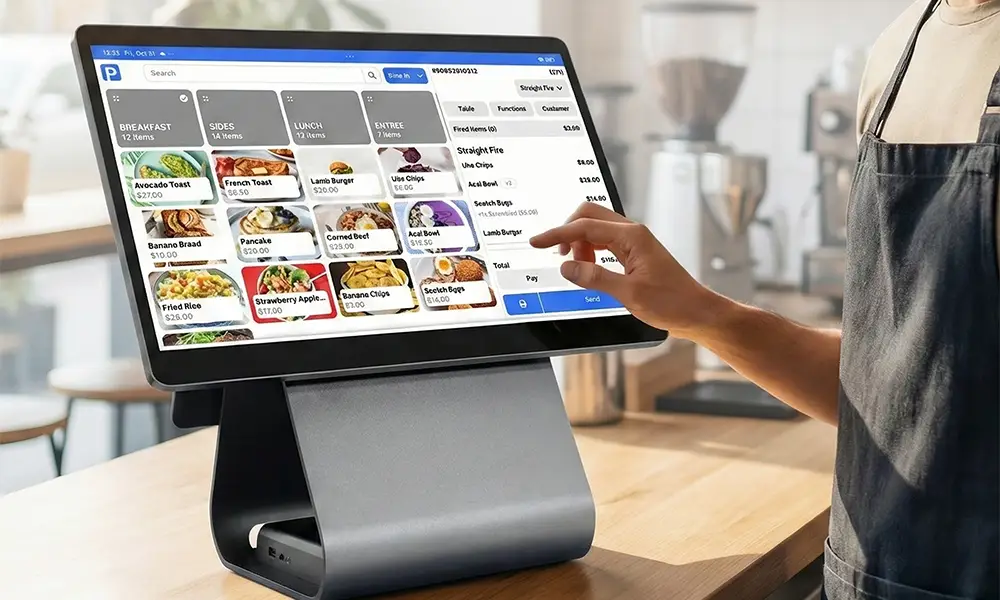As a small business owner, do you find yourself overwhelmed by the number of POS systems available in 2025? You’re not alone. With so many options out there, choosing the right POS system for your business can feel like a daunting task. Whether you’re running a café, retail store, or small service business, the decision you make can affect your daily operations, customer experience, and overall success.
The good news is that choosing the right POS system for a small business doesn’t have to be difficult. In this blog, we’ll walk you through the key factors to consider, break down the features you really need, and help you make an informed decision that will support your business’s growth in 2025 and beyond.
If you're looking for an affordable and efficient POS solution, Payflo offers a powerful, easy-to-use system tailored to small businesses. Learn more by visiting Payflo’s website.
Why the Right POS System Matters for Small Businesses
Before we dive into the specifics of choosing the right POS system, let’s take a moment to consider why this decision is so important for your small business.
The Role of a POS System in Small Business Operations
A POS system is more than just a tool for processing payments. It’s the central hub that connects everything in your business. From tracking sales and managing inventory to handling customer data and generating reports, a good POS system streamlines multiple functions, saving you time and reducing the risk of errors.
In 2025, your POS system needs to be more than just functional – it needs to adapt to the changing needs of your business. Choosing the right POS system for small businesses means selecting a system that helps you meet your operational goals without overcomplicating things.
Key Benefits of Choosing the Right POS System
- Efficiency: The right system can automate time-consuming tasks, freeing up time for you and your employees to focus on customers.
- Accuracy: Reduces manual data entry and inventory errors, which can lead to costly mistakes.
- Insights: Provides valuable data and reports to help you make informed business decisions.
- Customer Experience: Streamlines the checkout process, leading to faster service and happier customers.
Ultimately, a good POS system should improve your operations, help you stay organised, and support your business as it grows.
Key Factors to Consider When Choosing the Right POS System for Small Business
Now that we understand the importance of a POS system let’s look at the critical factors to consider when making your decision.
1. Cost
The cost of a POS system is often the first-factor small business owners consider. It’s important to be aware that the total cost of a POS system goes beyond just the initial purchase price. Many systems come with additional monthly fees, transaction fees, hardware costs, and support charges.
What to Look For:
- Upfront costs: How much will the hardware (terminals, receipt printers, etc.) cost?
- Subscription fees: Are there recurring charges for the software?
- Transaction fees: Many POS systems charge a percentage of each transaction. Make sure you understand the fee structure.
While it’s tempting to choose the cheapest option, you’ll want to ensure the system has all the features your business needs to thrive in 2025.
2. Ease of Use
For small businesses, ease of use is crucial. A POS system that’s difficult to navigate will slow down your staff and create more room for errors. When selecting a system, consider how easy it is for you and your team to learn and operate.
What to Look For:
- Simple interface: Look for a POS system with an intuitive, user-friendly design.
- Training and support: Does the system come with training resources? Is customer support available if issues arise?
- Scalability: As your business grows, will the system be able to scale with your needs without adding complexity?
A POS system should streamline your processes, not add to your workload. Payflo offers an easy-to-use interface that simplifies operations for small businesses, with comprehensive customer support available when needed.
3. Integration with Other Business Tools
In 2025, most small businesses rely on a variety of software tools, such as accounting software, inventory management, and customer relationship management (CRM) systems. Your POS system needs to integrate smoothly with these tools to avoid double data entry and keep everything in sync.
What to Look For:
- Accounting software integration: Ensure your POS system syncs with your accounting platform (e.g., QuickBooks or Xero).
- Inventory management integration: The system should automatically update stock levels and send alerts for reorders.
- CRM integration: Look for a system that integrates with your CRM, allowing you to track customer information and sales history.
By choosing the right POS system for small business that integrates well with your existing software, you can improve efficiency and reduce errors.
4. Mobile Capabilities
Today’s businesses require more flexibility than ever before. If you own a café, food truck, or retail pop-up, you may need a POS system that allows you to take payments on the go. Mobile POS systems offer that flexibility, allowing you to process payments directly from a tablet or smartphone.
What to Look For:
- Portability: Can you use the system on a tablet or smartphone?
- Wireless payment options: Does the POS system support mobile wallet payments like Apple Pay or Google Pay?
- Ease of access: Can you check reports, inventory, and sales data remotely?
Mobile POS systems, like Payflo Go, allow you to take payments and manage your business from anywhere, whether you're at the counter or on the move.
5. Customer Support
No matter how great your POS system is, issues can arise. Whether it's a technical glitch or a question about a feature, you need reliable customer support to resolve problems quickly.
What to Look For:
- Availability: Ensure customer support is available during your operating hours, ideally with 24/7 support.
- Channels: Does the system offer phone, chat, or email support? Some systems also provide remote troubleshooting.
Choosing a provider with excellent support can save you a lot of frustration down the line. Payflo offers robust customer service to help you resolve issues promptly, so you never have to worry about downtime.
How Payflo Helps Small Businesses Choose the Right POS System for 2025
Payflo offers a simple, scalable POS system designed specifically for small businesses. With features like cloud-based functionality, seamless integration with accounting and inventory tools, and a user-friendly interface, Payflo provides everything you need to run your business efficiently in 2025.
Payflo Features Include:
- Mobile POS options for flexibility on the go.
- Real-time reporting and analytics to make informed business decisions.
- Integrated payment processing with low transaction fees.
- Comprehensive support to assist you every step of the way.
Whether you're opening a new business or upgrading your current system, Payflo offers the features, support, and flexibility needed for long-term success. Visit Payflo’s website to get started today.
Conclusion
Choosing the right POS system for small business owners in 2025 is more than just finding a way to process payments. It’s about selecting a system that integrates well with your business tools, supports growth, and helps streamline your daily operations. With the features we’ve covered, you’re now better equipped to make an informed decision.
If you're still unsure which POS system is right for your business, Payflo offers a simple, effective solution that meets your needs. Visit our website and book a demo to see how Payflo can transform your operations.
FAQs
1. How do I choose the right POS system for my business?
Consider your business’s size, budget, and specific needs. Look for features like mobile capability, ease of use, integration with other tools, and good customer support.
2. Is Payflo a good POS system for small businesses?
Yes, Payflo is designed for small businesses and offers features like cloud-based functionality, mobile POS, and seamless integrations with accounting and inventory systems.
3. Can Payflo integrate with accounting software?
Yes, Payflo integrates with popular accounting software like Xero and QuickBooks, allowing for seamless syncing of sales and financial data.
4. What are the costs associated with using a POS system?
Costs typically include hardware, subscription fees, transaction fees, and any additional integrations or services. It’s important to understand the full pricing structure before committing.
5. How does mobile POS work?
Mobile POS systems allow you to process transactions via tablets or smartphones, giving you flexibility to take payments on the go, whether in-store or at events.


%201.svg)
%201.svg)





.png)
.png)
